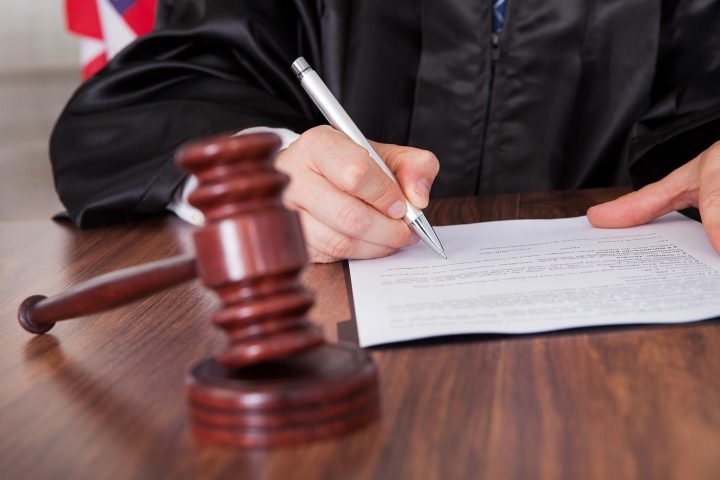
Batson Challenge in Criminal Trials in Oklahoma involves picking a jury as part of a criminal defense case. In criminal trials, picking a jury of your peers is one of the most crucial steps in ensuring a fair trial. However, racial or gender discrimination in jury selection has been a longstanding issue, which is why the Batson challenge was established. If you are facing criminal charges in Oklahoma, understanding how the Batson challenge works could be key to protecting your rights.
What Is a Batson Challenge?
A Batson Challenge in Criminal Trials is a legal objection raised by a defense attorney (or sometimes the prosecution) when they believe that the opposing party is using peremptory challenges to exclude potential jurors based on race, ethnicity, or gender. The challenge is based on the landmark U.S. Supreme Court case, Batson v. Kentucky, 476 U.S. 79 (1986), which ruled that striking jurors solely based on race violates the Equal Protection Clause of the Fourteenth Amendment.
Peremptory Challenges vs. Challenges for Cause
To understand a Batson challenge, it’s important to distinguish between the two types of challenges attorneys can use during jury selection:
- Challenges for Cause – Used when a juror is biased, unqualified, or incapable of being impartial. There is no limit to these challenges.
- Peremptory Challenges – Allow attorneys to remove a juror without giving a reason. However, peremptory challenges cannot be used to discriminate based on race, gender, or ethnicity under Batson.
The Three-Step Process of a Batson Challenge
If the defense believes the prosecution (or vice versa) is removing jurors based on race, they can raise a Batson challenge, which involves the following steps:
Step 1: Prima Facie Showing of Discrimination
The party raising the Batson challenge must present evidence suggesting that the opposing party is using peremptory challenges in a discriminatory manner. This typically involves showing that:
- A pattern of strikes is being used against jurors of a certain race or gender.
- The excluded juror belongs to a protected class.
- The opposing party’s strikes suggest intentional discrimination.
Step 2: Neutral Explanation by the Opposing Party
Once a Batson challenge is raised, the opposing attorney must provide a race-neutral explanation for striking the juror. This explanation does not have to be persuasive or reasonable—it just needs to be non-discriminatory. Some common explanations include:
- The juror had prior negative experiences with law enforcement.
- The juror expressed hesitation about the legal system.
- The juror was inattentive or appeared unengaged.
- The juror had family members with criminal convictions.
Step 3: Court Determines Whether Discrimination Occurred
The trial judge then evaluates the explanation and decides whether it is legitimate or merely a pretext for discrimination. If the judge finds that the strike was racially motivated, they can take corrective action, such as:
- Reinstating the juror.
- Starting jury selection over.
- Sanctioning the offending attorney.
Why the Batson Challenge Matters in Criminal Defense
A jury should be fair and impartial, and racial discrimination in jury selection undermines a defendant’s right to a fair trial. A successful Batson challenge can prevent unfair exclusions and help ensure that a diverse jury decides the case.
If a Batson violation is discovered after trial, it can be grounds for a criminal appeal or post-conviction relief, potentially leading to a new trial.
Challenges in Proving a Batson Violation
Despite its importance, Batson challenges can be difficult to win because:
- The prosecution can provide almost any race-neutral reason, even if it is subjective.
- Trial judges often defer to attorneys and accept their explanations at face value.
- It is hard to prove that a strike was racially motivated unless there is a clear pattern.
However, courts have recognized that Batson violations can occur through unconscious bias, and defense attorneys must be diligent in identifying patterns of racial discrimination.
Batson Challenges in Oklahoma Courts
In Oklahoma, Batson Challenge in Criminal Trials follows the same framework as federal courts. Defense attorneys often raise Batson objections in high-stakes criminal trials where racial bias could impact the outcome. Oklahoma appellate courts have also reviewed cases where defendants argued that they were denied a fair trial due to improper jury selection.
For example, if a prosecutor in an Oklahoma courtroom strikes all potential Native American or Black jurors without a valid reason, the defense can invoke Batson to challenge the fairness of the jury selection process.
Talk With a Tulsa Oklahoma Trial Attorney
The Batson Challenge in Criminal Trials is an essential tool for protecting the integrity of the jury system and ensuring that criminal defendants in Oklahoma receive a fair trial. If you believe that racial discrimination could affect your jury selection, it is critical to consult with an experienced Tulsa, Oklahoma criminal defense attorney who can raise and argue a Batson challenge effectively. For a free consultation with an attorney from Tulsa Criminal Lawyers Law Firm call 918-416-0358. Or you can follow this link and ask an online legal question.
